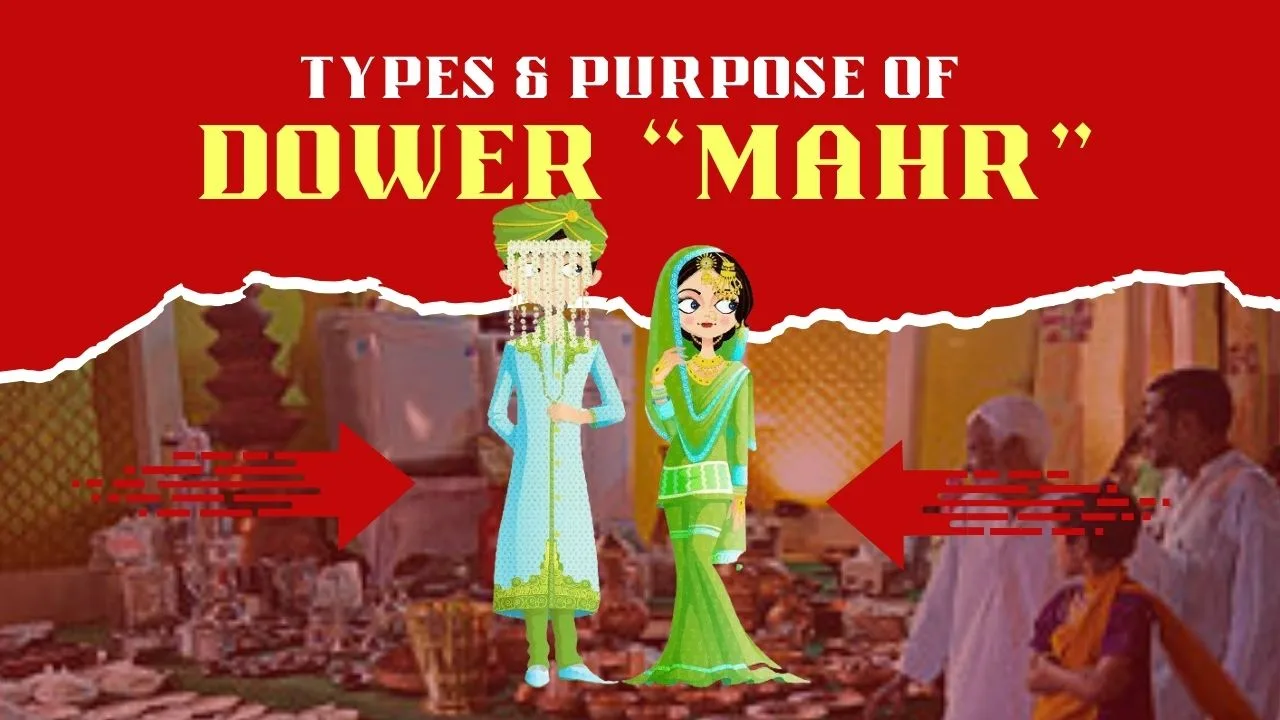Dower, known as “mahr” in Islamic law, is the sum of money or property that a husband provides to his wife as a gesture of respect and support. It acts as a financial safeguard for the wife’s well-being, ensuring her security in case of marriage dissolution. In Muslim law, there are four types of dower: Muta Dower, Specified Dower, Prompt Dower, and Deferred Dower.
Read Also: Types of Muslim Marriage – PDF Law Notes
Definition and Purpose of Dower
English Law: Dower refers to the portion of a deceased husband’s lands that a widow receives for her sustenance and child upbringing.
Islamic Law: Dower (Mahr) is a payment made by the husband to the wife at the time of marriage, securing the wife’s well-being and providing for her after marriage ends through divorce or the husband’s death.
Concept of Dower in Muslim Law
- Essential Component: Dower is a crucial part of the Muslim marriage contract.
- Consideration: In Muslim marriages, the dower itself acts as the consideration, symbolizing the husband’s commitment to support his wife during and after the marriage.
- Significance: Dower is a sign of respect and acknowledgment of the wife’s rights.
Legal Perspectives on Dower in India
- No Specific Definition: Indian law doesn’t prescribe a specific dower amount, leading to varying interpretations by courts.
- Importance: Dower is recognized as essential in Muslim law to ensure the wife’s financial security and prevent helplessness.
Types of Dower in Muslim Law

- Muta Dower:
- Temporary Marriage: Refers to a marriage for a specific period.
- Payment Conditions:
- Full dower if the marriage is consummated.
- Half dower if not consummated.
- No dower if the wife leaves before the specified period.
- Specified Dower:
- Fixed Amount: A mutually agreed amount or property.
- Sunni Law: Minimum dower is 12-13 Rupees (10 Dirhams), with no upper limit.
- Shia Law: No specified minimum or maximum; based on the husband’s financial ability.
- Mutual Consent: Dower can be increased after marriage by mutual consent (Kukkiya Begum vs Radha Kishan).
- Prompt Dower:
- Immediate Payment: Payable upon demand, usually before or immediately after marriage.
- Legal Right: A wife can refuse to live with her husband until the prompt dower is paid (Rabia Khatoon vs Mukhtar Ahmed).
- Pre-Consummation: Payment should be made before the marriage is consummated.
- Deferred Dower:
- Delayed Payment: Payable upon a specific event, expiration of a period, or dissolution of marriage.
- No Immediate Demand: The wife cannot demand deferred dower unless mutually agreed upon.
- Proper Dower:
- Unspecified Dower: Determined when the dower amount is not pre-decided.
- Wife’s Discretion: The wife can determine a reasonable amount, independent of the husband’s financial status.
Conclusion
Types of Dower:
- Muta Dower: Payment based on marriage duration and consummation.
- Specified Dower: Pre-agreed fixed amount with differences in Sunni and Shia law.
- Prompt Dower: Immediate payment required before consummation.
- Deferred Dower: Payable upon specific events or marriage dissolution.
- Proper Dower: Flexible amount determined by the wife when not pre-decided.
Purpose: Each type of dower serves to secure the wife’s rights and is governed by legal and cultural practices.
Wait Time remaining: 50 seconds


